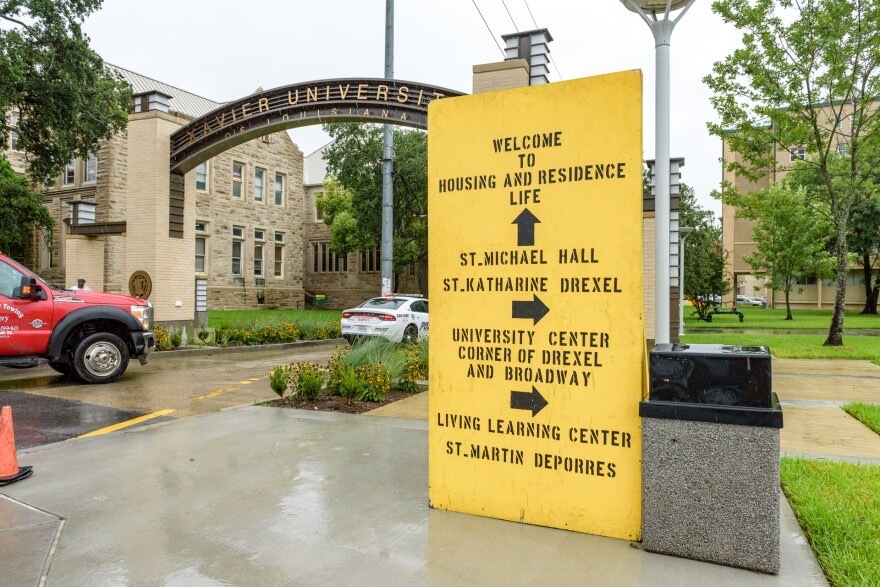NPR’s Ayesha Rascoe speaks with Morgan State University’s chief of police, Lance Hatcher, about the challenges facing HBCUs as racially motivated, domestic extremism intensifies in the U.S.
Before killing three people at a Dollar General store in Jacksonville, Fla., last week, the gunman made a stop – Edward Waters University, an HBCU. Its president says students spotted him putting on gloves and an armored vest in a library parking lot. They went and got a security officer.
A ZACHARY FAISON JR: Lieutenant Antonio Bailey – he then began to approach the individual who, by that time, was now seated in his vehicle, at which time, upon recognizing the presence of Lieutenant Bailey, the individual immediately fled the university parking lot, jumping the curb and nearly hitting a nearby brick column in the parking lot.
RASCOE: It’s not clear if the HBCU was a target for the shooter, who was a white supremacist. But are historically Black colleges and universities on guard? Lance Hatcher is chief of police at Morgan State University, an HBCU in Baltimore. He joins us now. Welcome to the program.
LANCE HATCHER: Thank you, Ayesha. Glad to be here.
RASCOE: How often did you think about schools like yours – HBCUs – being targets of racist violence before last week’s shooting in Jacksonville?
HATCHER: Well, unfortunately, we think about it quite often, you know, if not daily, weekly. So we subscribe to the theory that not if but when. And that’s how we drive ourselves daily to ensure that we can at least try to prevent these things and, if not, mitigate them.
RASCOE: Has Morgan State had many credible threats of racially motivated violence?
HATCHER: We have not, fortunately. The most recent that we’ve had was the bombing threats back, I believe, about a year ago that Morgan and many other HBCUs received.
RASCOE: How did that affect the campus? How did that affect the way you approach your job?
HATCHER: It did not negatively affect us. We routinely subscribe to the fact that we don’t get prepared. We stay prepared. So when they first started to occur, Texas Southern was one of the first ones that received it. We’re all part of a consortium of chiefs of police and directors of security for HBCUs. So we’ve communicated at that time what was going on and the challenges that we were encountering with the bomb threats. And through our conversations, we were prepared when we received ours in the beginning of February.
RASCOE: What steps has Morgan State taken to adapt to the rising threat of violent extremism and mass shootings in the U.S.?
HATCHER: Well, we’ve invested very significantly in upgrading cameras – we have approximately 1,000 cameras on campus – lighting on campus, additional police officers, security officers that belong and work for the institution itself. And then we have a contractual security company that supplies us upwards of 25 security officers per shift, and we have them strategically placed on campus and in our residential on-campus housing, as well as our off-campus housing.
RASCOE: You know, it’s no secret that HBCUs are generally underfunded. How does that complicate safety planning?
HATCHER: Historically, for HBCUs, it does make it challenging. We may not have the financial resources that white institutions may have. However, as far as Morgan – I can only speak for Morgan – Dr. Wilson, the president of Morgan State University, lobbied and petitioned the lawmakers in Annapolis and has secured additional funding for police and safety on campus. Also, as the police department, we have sought out grants that allow us to purchase body-worn cameras, vehicles, as well as bullet-resistant vests. So it is a challenge, but it’s not insurmountable.
RASCOE: That’s Lance Hatcher, Morgan State University’s chief of police. Thank you so much for joining us.
HATCHER: Thank you for having me, and glad to be here.

